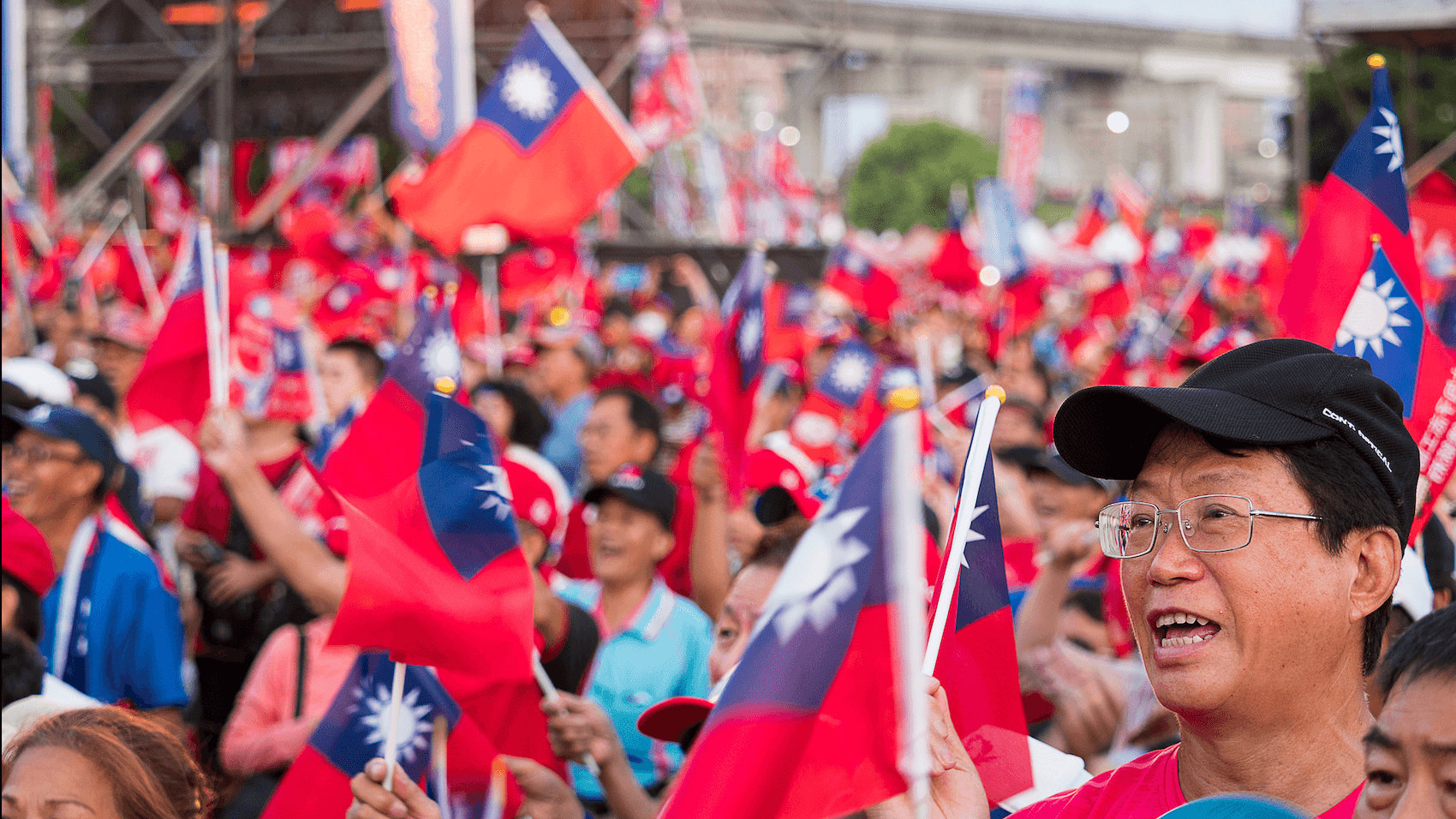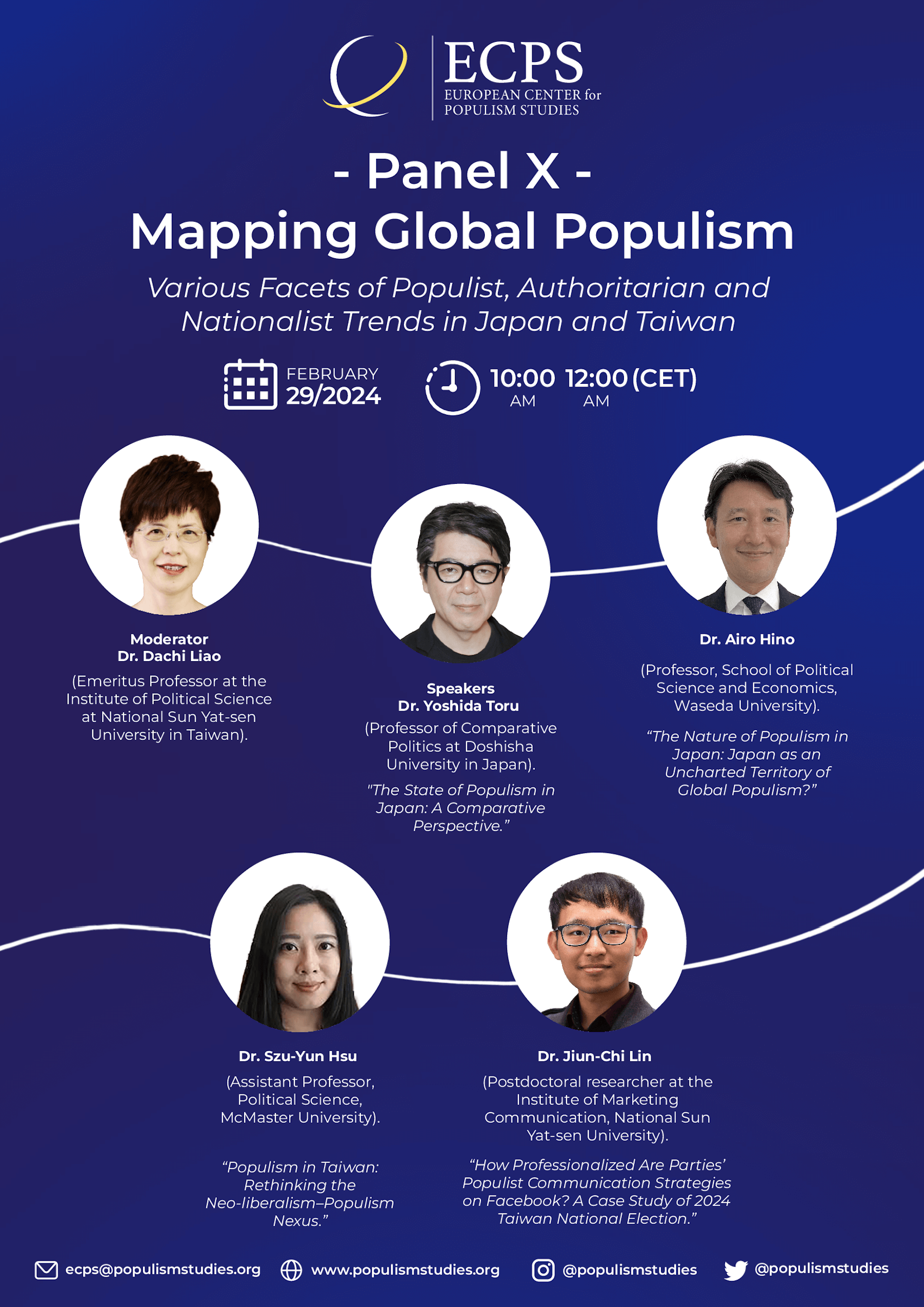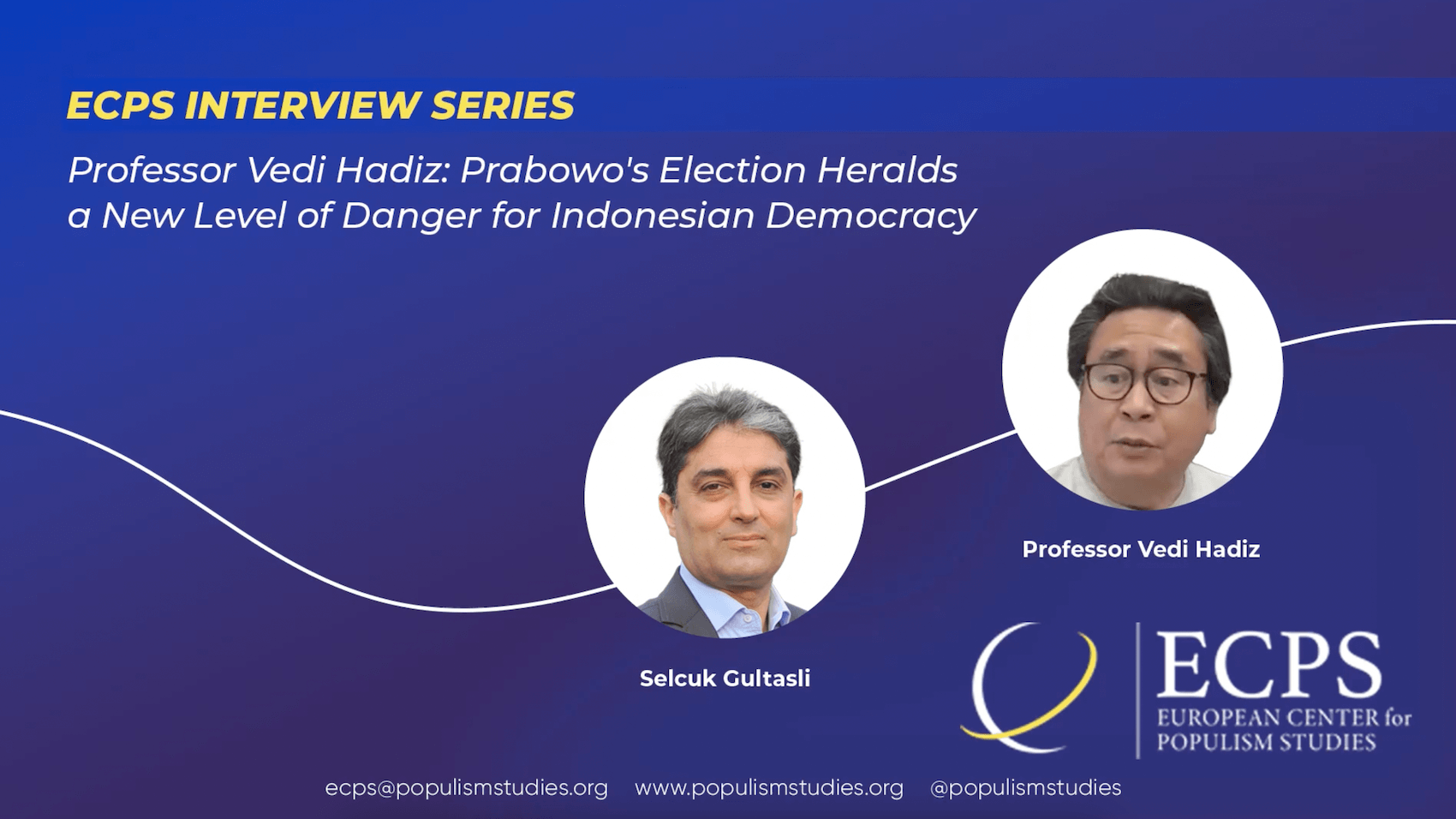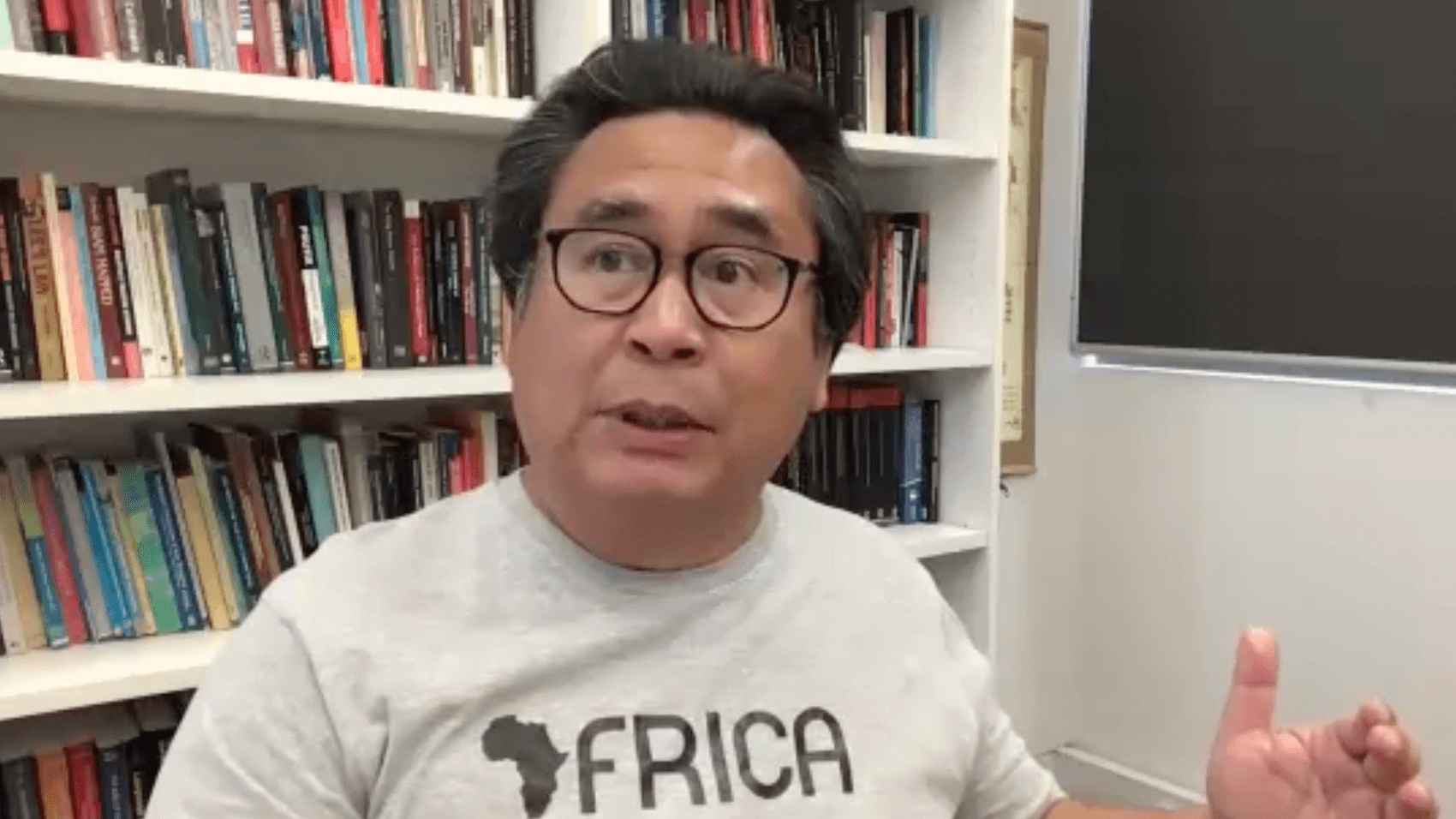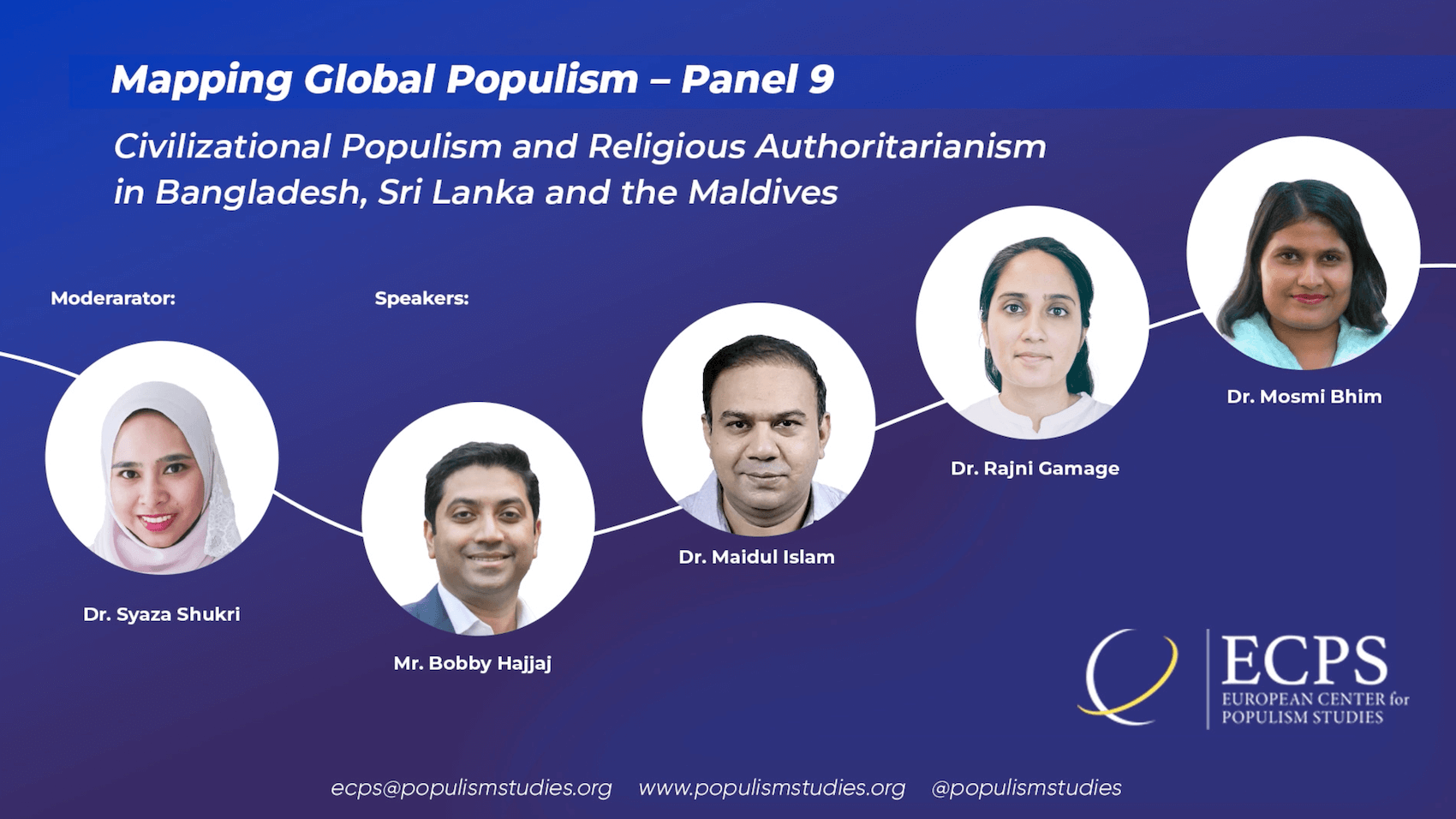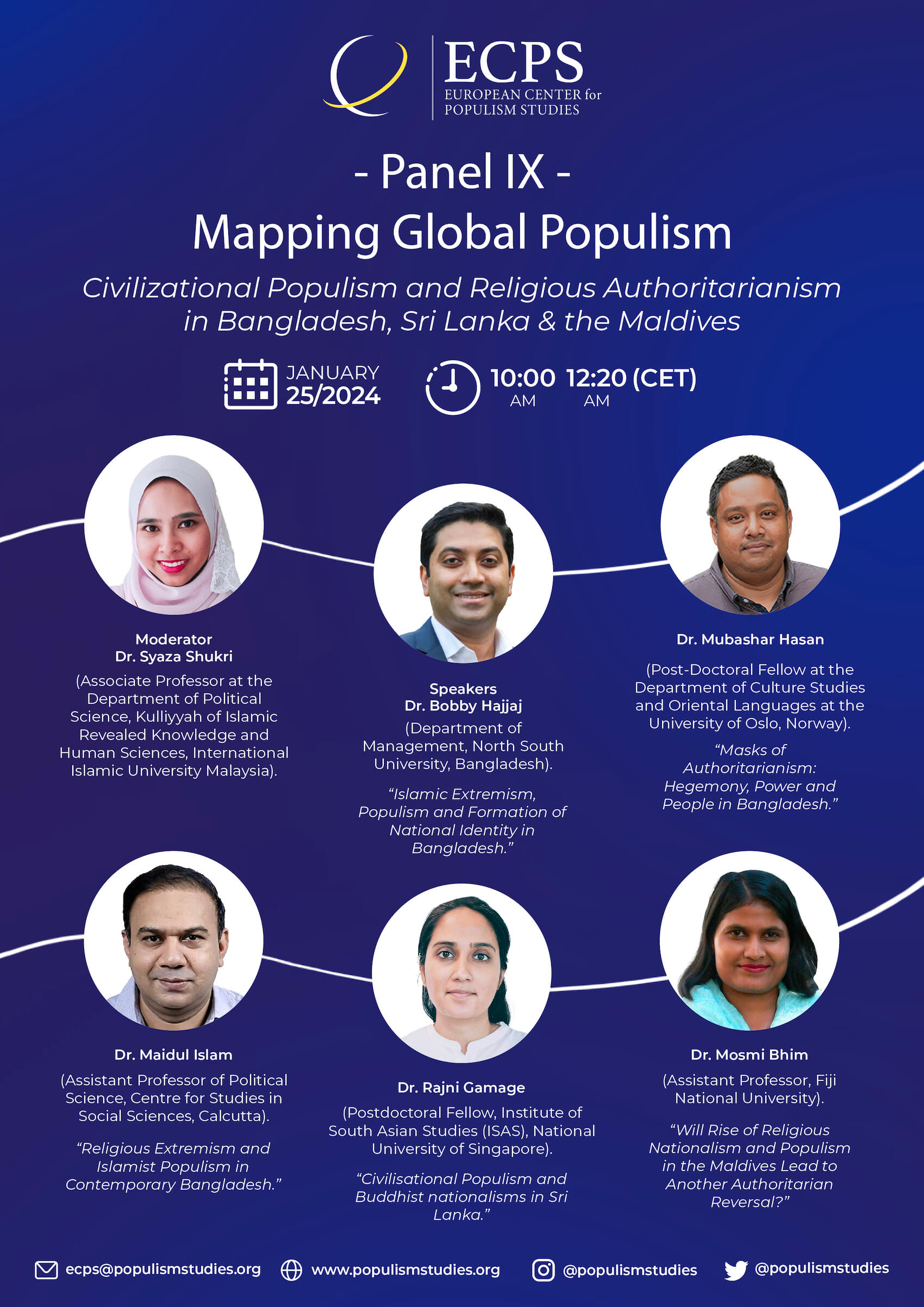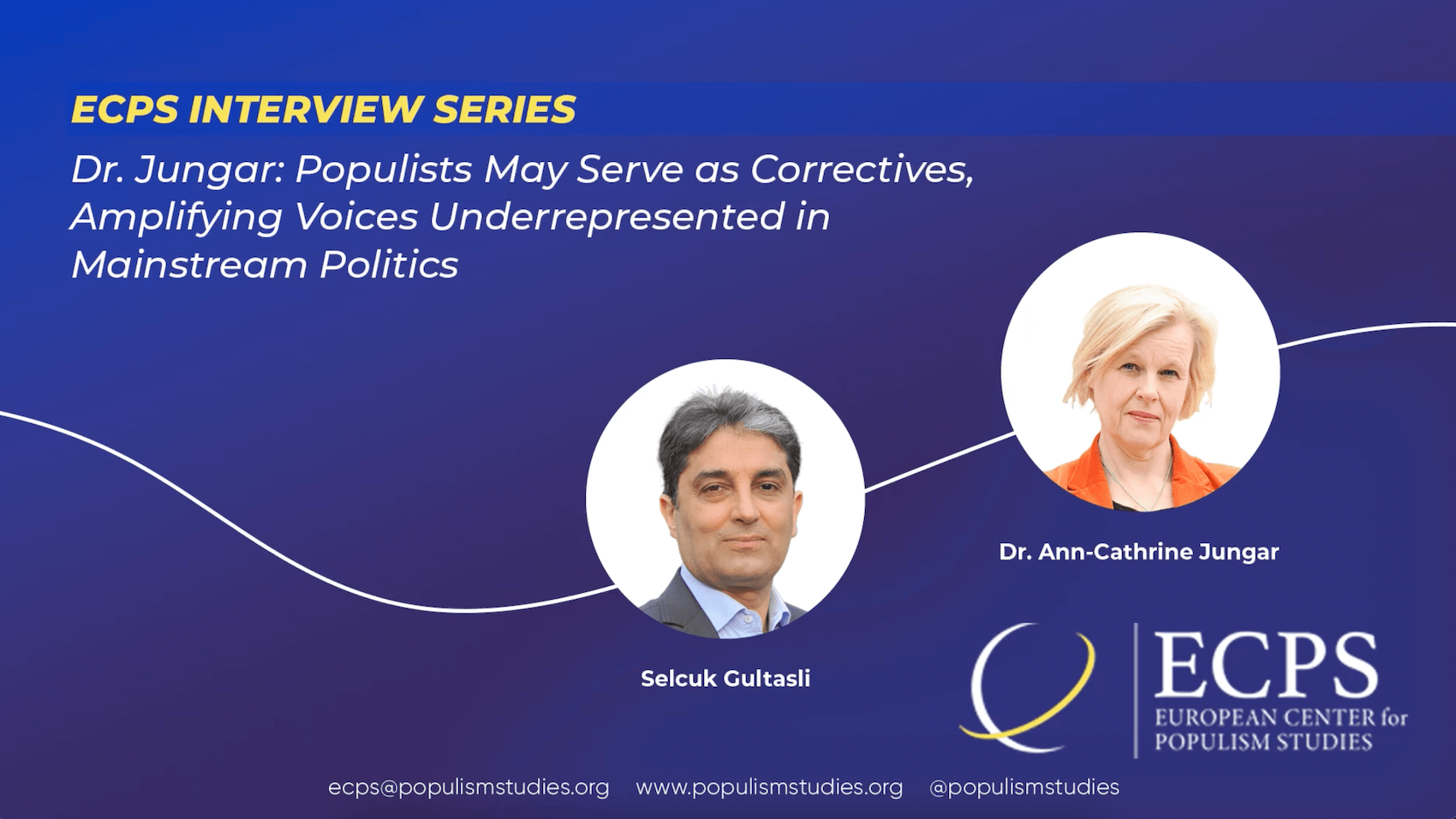Activist movements such as Black Lives Matter (BLM), MeToo, Fridays for Future (FFF), Extinction Rebellion (XR) and many more use populist frameworks and rhetoric elements that contest the elites and claim the general will of the people. We see BLM standing up against the racist system of white elites. We look at #MeToo fighting against the patriarchal system of male elites. And we watch FFF and XR challenging the neoliberal, capitalist system of big corporate elites. All of these activist movements are supposedly fighting for the general will of the people, similar to populism. But how much of activist rhetoric is coopted from populist ideology, movements, and parties? And how much did populism copy from activist movements in their approach? This is what this article will try answer.
2024 is already polluted and flooded with political protests, actions and political discourses about intensifying conflicts around the world and upcoming elections as this year constitutes a very strong voting year (Buchholz, 2024). Characterized by pro-Palestine and anti-genocide actions around the world under several social and political movements including the BDS-movement (Boycott, Divestment and Sanctions-Movement) and farmers protests by the agricultural sector and right-wing parties, 2024 already offers a lot of activism and political engagement (Lesnes, 2024; Tanno & Liakos, 2024). However, such political activism and engagement often comes hand in hand with polarization and populism (Sawyer, 2023).
Before we dive into the connection between activism and populism, we first need to establish working frameworks for both terms. Firstly, activism can be identified as a tool to express ideology and identity and is closely linked with protests and civil participation (Siim et al., 2018). It includes citizens voicing critical opinions through strikes, boycotts, petitions, the occupation of buildings, mass demonstrations and acts of political violence (Norris, 2004) directed against political institutions, but also public actors and figures. Political activism can play out on the local, national, or transnational level through everyday activities and political actions. It includes diverse solidarity and resistance movements and pro-diversity and pro-equality agency (Siim et al., 2018).
Secondly, populism can be defined as thin ideology, as it is flexible to be used in conjunction with other ideologies, such as environmentalism, feminism, socialism and communism, and other systems of knowledge (Stanley, 2008; Mudde, 2004). Three main components of populism can be characterized based on this approach: (1) the people, challenging (2) the corrupt elite and claiming that politics should be the expression of the (3) general will of the people (Mudde, 2004).
Connections between Activism and Populism
We can already assume that activist movements, that use ideology to justify their political agenda and motives can use their leading ideology in conjunction with populism as a means to convey their message and transform discontent through collective cognitive processes into action (Aslanidis, 2017). For example, BLM fights for racial equality as their ideology and contests the white elites, constituting a populist element (Campbell, 2021). Specifically, people of color and marginalized groups affected by white supremacy are the “people” BLM fights for. ‘The general will’ is guided by the principles of anti-discrimination and racial equality (Campbell, 2021).
Additionally, MeToo is advocating for feminism as their ideology, by criticizing the male elites, manifesting a populist element (MeToo Mvmt, 2023). MeToo fights especially for FLINTA (female, lesbian, intergender, non-binary, transgender and agender persons), for the “people” marginalized by the patriarchy. MeToo fights especially as general will for gender equality.
Moreover, FFF and XR use environmentalism as their ideology by raising awareness for sustainability and environmental protection. Thus, they challenge the capitalistic elites, forming an element of populism (Extinction Rebellion NL, 2024; Fridays for Future, 2021). FFF and XR fight specifically for people affected by the climate crisis such as climate refugees and small-scale farmers as well as people that are subject to colonialism and exploitation, which ties back to everyone to some extent as we are all affected by climate change. The general will is based on climate justice. Thus, populist elements in activist movements can be characterized.
Circling back from activist movements to the literature, different connections between activism and populism based on research can be characterized. On the one hand, Zaslove et al. (2020) suggest that people who vote for populist parties and are discontent with democracy, are, however, still supportive of the overall democratic system compared to individuals with weaker populist attitudes. Thus, people who vote for populist parties are less inclined to protest and participate in protest marches, demonstrations, or protest action (Zaslove et al. 2020). On the other hand, Karlson (2024) found that demands made by BLM and MeToo for equal recognition of marginalized groups that are being oppressed in societies, can be coopted from activism and translated into populism. Often described as populist leader is Donald Trump for example. He uses frequently the framing of “the marginalized” to attract working-class supporters that feel disregarded by national elites. Trump uses this rhetoric to incorporate “political correctness” in his agenda and attract new potential voters (Karlson, 2024).
Populism and Activism on Social Media
Moving from general relations between activism and populism to digitalization and social media, Gustafsson and Weinryb (2019) show that individualized social media activism has affinities to populism and could have serious effects on democratic procedures and bureaucratic structures. This indicates that social media activism reinforces individualized forms of charismatic authority, which refers to the collective excitement produced by external events that form a type of heroism (Weber, 1978). In the following, charismatic authority can be characterized as a form of digital enthusiasm of a collective mass, that feels interconnected and engaged as well as in a position of possibilities to challenge the political system and the status quo, which translates into digital activism (Gustafsson & Weinryb, 2019). This may have large-scale implications how populism is understood and plays out in societies.
Furthermore, research by Mazzoleni & Bracciale (2018) found that populist leaders, such as Berlusconi, Di Maio, Salvini, and Melini, prominent figures in Italy, utilize social media more extensively than mainstream party figures to counteract negative coverage by traditional media outlets. Apart from their appearances on TV shows and news broadcasts, social media platforms provide direct channels for these populist leaders to engage with their constituents (Mazzoleni & Bracciale, 2018). This direct interaction between populist leaders and their followers can amplify social media activism and political engagement among their supporters (Mazzoleni & Bracciale, 2018).
From these examples we can see that activism uses actively populist rhetoric. However, the narratives created by activism can be then coopted by populist leaders. Moreover, we can recognize that even though activism and populism can increase trust in democracy leading to less protests, the majority of research clearly indicates that in multiple cases activism is the accelerator nourishing populist ideology that motivates the people to act and speak up. From this we can investigate how populist parties use and affect activism.
Activism Used and Affected by Populist Parties
To make sense of populist parties infringing and utilizing activism, authoritarian and democratic populism should be distinguished. Authoritarian populist parties are anti-democratic and attack policies and the rule of law which are based on core institutional pillars of the state order (Bugarič, 2019). On the contrary, democratic populism focuses on the emancipation of voters, and the protection and defense of democracy by making institutions and the system more accountable, equitable and inclusive (Bugarič, 2019).
Research by Whiteley et al. (2019) indicates that activists are more important in populist right-wing parties, than in traditional parties, as they move the party forward and act as key roles and figures for campaigning and organizing as well as funding since they are the most committed members. Furthermore, activism can be used by right-wing populist parties and leaders to mobilize for mass demonstrations and even occupations in conjunction with social media advertisement. For example, populist radical right-wing parties such as the British Independence Party (UKIP), the Austrian Freedom Party (FPÖ) and the Alternative for Germany (AfD) engage with activism through petitions, participation and organization of demonstrations and marches, especially in recent years against Covid19-restrictions and currently farmers protests (Whiteley et al., 2019; Euronews, 2021; Hämmerle, 2024; Neuerer, 2024). Another notable example is Donald Trump and the storming of the Capitol, where he rallied his supporters through populist rhetoric, encouraging their participation in the event (Barry et al., 2021).
Although right wing populist parties can use activism to their advantage, activism that works in their disadvantage can be also shut down by right-wing populist parties in power. Poland and Hungary oppress and silence activists through new legislation and regulations, especially anti-abortion, women’s and LGBTIQ+ activists as well as anti-fascist activists and protestors. The populist parties in Hungary (Fidesz) and Poland (Law and Justice Party) restrict and limit civil participation further and further through prohibiting strikes (Gwiazda, 2020; Winfield, 2024).
In contrast to authoritarian populist parties, democratic populist parties like the Spanish left-wing Podemos or the Dutch left-wing BIJ1 originated from activist groups (De Nadal, 2020; Ornstein, 2023). In Spain, this evolution stemmed from the Indignados movement (De Nadal, 2020). In the Netherlands, the party was formed by activists from XR and other related anti-discrimination and anti-racism movements (Ornstein, 2023; NL Times, 2023). Moreover, Podemos and BIJ1 actively participate in mass protests, demonstrations, and petition campaigns (De Nadal, 2020; Gerbaudo, 2021). Additionally, the Greek left-wing populist party Syriza and its activists engage in activism by establishing food banks, known as Solidarity Clubs, where they encourage farmers to donate food to support impoverished families and neighborhoods, often requesting items like bags of potatoes or oranges (Mason, 2017).
Activism as Antidote to Populism
As the last part of this analysis, it should be mentioned that activism can also serve as a tool to counteract anti-democratic populism. Particularly, activism aimed at combating othering and exclusion is utilized to push back against right-wing populist parties, which purport to address issues concerning European integration, multiculturalism, globalization, and migration (Siim et al., 2018). This solidarity-based activism can be specifically employed to combat hate speech and hate crimes prevalent in ostensibly tolerant and inclusive systems that are, in reality, not as tolerant as they appear. Activism against right-wing populist parties serves to bring populism to light and prompts critical reflection on concepts such as citizenship, democracy, social movements, and conflicts and cooperation around race/ethnicity, gender, sexuality, and class (Siim et al., 2018). Additionally, activism can be directed against populist leaders, such as Donald Trump in the US, by supporting women’s rights, LGBTIQ+ rights, and fundamental human rights activists, who in turn amplify criticism against Trump (Žarkov, 2017).
Conclusion
To conclude, populism is neither good nor bad. It is a powerful tool especially in conjunction with activism and mass mobilization. Although we are thankful for our freedom, political engagement and connectedness through social media and digital platforms, populism and activism combined can lead to an acceleration of uncontrollable mass action completely isolated from reality and realistic political approaches.
While we are praising democratic populism that can be used through activism to make our society more inclusive, accountable, and equal, we should be cautious and careful to not let this development translate into an increase of right-wing populism. We should also keep always in mind that populist parties especially when in government positions have the power and authority to often shut down and repress activism, public participation, and criticism against their regime.
To follow-up on the examples of activist movements mentioned at the beginning of this article, it can be concluded, that populism indeed has the possibility to reinforce and support democratic, inclusive activism. However, we should not forget that populism also is used as a tool to create enemies and friends, shaping the world into a binary of good and evil. Those generalizations of “the people” and “the elite” can be indeed also harmful for our society and any political participation.
References
Aslanidis, P. (2017). “Populism and social movements.” In: Oxford University Press eBooks. https://doi.org/10.1093/oxfordhb/9780198803560.013.23
Barry, D.; McIntire, M. & Rosenberg, M. (2021, November 10). “‘Our president wants us here’: the mob that stormed the Capitol.” The New York Times. https://www.nytimes.com/2021/01/09/us/capitol-rioters.html (accessed on March 8, 2024).
Buchholz, K. (2024, January 19). “2024: The super election year.” Statista Daily Data. https://www.statista.com/chart/31604/countries-where-a-national-election-is-was-held-in-2024/ (accessed on March 8, 2024).
Bugarič, B. (2019). “The two faces of populism: Between authoritarian and democratic populism.” German Law Journal, 20(3), 390–400. https://doi.org/10.1017/glj.2019.20
Campbell, B. A. (2021, June 12). “What is Black Lives Matter and what are the aims?” BBC News. https://www.bbc.com/news/explainers-53337780 (accessed on March 8, 2024).
Corbett, H. (2023, November 16). “The #MeToo movement six years later: What’s changed and what’s next.” Forbes. https://www.forbes.com/sites/hollycorbett/2023/11/16/the-metoo-movement-six-years-later-whats-changed-and-whats-next/?sh=24d931ca2a16 (accessed on March 8, 2024).
De Nadal, L. (2020). “On populism and social movements: from the Indignados to Podemos.” Social Movement Studies, 20(1), 36–56. https://doi.org/10.1080/14742837.2020.1722626
Euronews. (2021, December 11). “Wien: 20.000 auf ‘Megademo für Freiheit gegen Chaos und Zwang’.” Euronews. https://de.euronews.com/2021/12/11/wien-20-000-auf-megademo-fur-freiheit-gegen-chaos-und-zwang (accessed on March 8, 2024).
Extinction Rebellion NL. (2024, March 4). “Over ons. Declaration of Rebellion.” Extinction Rebellion Nederland. https://extinctionrebellion.nl/over-ons/ (accessed on March 8, 2024).
Fridays For Future. (2021, September 7). “Fridays For Future – Campaigns, actions, petitions.” https://fridaysforfuture.org/what-we-do/actions/ (accessed on March 8, 2024).
Gerbaudo, P. (2021, May 15). “To recapture the spirit of the indignados, Podemos has to speak to working people.” Jacobin. https://jacobin.com/2021/05/podemos-pablo-iglesias-indignados-spain/ (accessed on March 8, 2024).
Gustafsson, N. & Weinryb, N. (2019). “The populist allure of social media activism: Individualized charismatic authority.” Organization, 27(3), 431–440. https://doi.org/10.1177/1350508419828565
Gwiazda, A. (2020). “Right-wing populism and feminist politics: The case of Law and Justice in Poland.” International Political Science Review, 42(5), 580–595. https://doi.org/10.1177/0192512120948917
Hämmerle, W. (2024, January 19). “Bauernprotest: Elf Traktoren und 150 Demonstranten vor dem Ballhausplatz.” kleinezeitung.at. https://www.kleinezeitung.at/politik/innenpolitik/18008405/bauernprotest-elf-traktoren-und-150-demonstranten-vor-dem-ballhausplatz (accessed on March 8, 2024).
Karlson, N. (2024). “The populist divisive, activist ideas.” In: Palgrave Studies in Classical Liberalism. Palgrave Macmillan, Cham (pp. 47–66). https://doi.org/10.1007/978-3-031-49074-3_5
Kochi, T. (2023). “Authoritarian populism, democracy and the long Counter-Revolution of the radical right.” Contemporary Political Theory, 22(4), 439–459. https://doi.org/10.1057/s41296-022-00611-3
Lesnes, C. (2024, February 28). “Across the US, pro-Palestinian activism is gaining ground.” Le Monde. https://www.lemonde.fr/en/international/article/2024/02/27/across-the-us-pro-palestinian-activism-is-gaining-ground_6563986_4.html (accessed on March 8, 2024).
Lesnes, C. (2024, February 28). “Across the US, pro-Palestinian activism is gaining ground.” Le Monde.fr. https://www.lemonde.fr/en/international/article/2024/02/27/across-the-us-pro-palestinian-activism-is-gaining-ground_6563986_4.html (accessed on March 8, 2024).
Maqbool, B. A. (2020, July 9). “Black Lives Matter: From social media post to global movement.” BBC News. https://www.bbc.com/news/world-us-canada-53273381 (accessed on March 8, 2024).
Mason, P. (2017, November 25). ‘Hope begins today’: the inside story of Syriza’s rise to power. The Guardian. https://www.theguardian.com/world/2015/jan/28/greek-people-wrote-history-how-syriza-rose-to-power (accessed on March 8, 2024).
Mazzoleni, G. & Bracciale, R. (2018). “Socially mediated populism: the communicative strategies of political leaders on Facebook.” Palgrave Communications, 4(1). https://doi.org/10.1057/s41599-018-0104-x
MeToo MVMT. (2023, January 23). “Healing in action.” https://metoomvmt.org/take-action/ (accessed on March 8, 2024).
Mudde, C. (2004). “The populist Zeitgeist.” Government and Opposition, 39(4), 541–563. https://doi.org/10.1111/j.1477-7053.2004.00135.x
Neuerer, D. (2024, January 18). “’Populistisch und verlogen’ – die entlarvende Bauern-Strategie der AfD.” Handelsblatt. https://www.handelsblatt.com/politik/deutschland/bauernprotese-und-afd-populistisch-und-verlogen-die-entlarvende-bauern-strategie-der-afd/100007470.html (accessed on March 8, 2024).
NL Times (2023, November 1). “BIJ1 activists project controversial pro-Palestinian slogan next to Dutch PM’s office.” https://nltimes.nl/2023/11/01/bij1-activists-project-controversial-pro-palestinian-slogan-next-dutch-pms-office (accessed on March 8, 2024).
Norris, P. (2004). “Young people & political activism.” ResearchGate. Paper presented for the conference ‘Civic engagement in the 21st Century: Toward a Scholarly and Practical Agenda’ at the University of Southern California. https://www.researchgate.net/publication/237832623_Young_People_Political_Activism (accessed on March 8, 2024).
Ornstein, L. (2023, December 9). “Wat is BIJ1?” NPO Kennis. https://npokennis.nl/longread/8124/wat-is-bij-1 (accessed on March 8, 2024).
Sawyer, P. (2023). “Populism and Protest Intensity: A Cross-National Analysis.” Cross-Cultural Research. https://doi.org/10.1177/10693971231202218
Siim, B., Saarinen, A. & Krasteva, A. (2018). “Citizens’ Activism and Solidarity Movements in Contemporary Europe: Contending with Populism.” In: Springer eBooks (pp. 1–24). https://doi.org/10.1007/978-3-319-76183-1_1
Stanley, B. (2008). “The thin ideology of populism.” Journal of Political Ideologies, 13(1), 95–110. https://doi.org/10.1080/13569310701822289
Svensson, A. & Wahlström, M. (2021). “Climate change or what? Prognostic framing by Fridays for Future protesters.” Social Movement Studies, 22(1), 1–22. https://doi.org/10.1080/14742837.2021.1988913
Tanno, S. & Liakos, C. (2024, February 10). “Farmers’ protests have erupted across Europe. Here’s why.” CNN World. https://edition.cnn.com/2024/02/03/europe/europe-farmers-protests-explainer-intl/index.html (accessed on March 8, 2024).
Weber M. (1978) Economy and Society: An Outline of Interpretive Sociology. Berkeley, CA: University of California Press.
Whiteley, P.; Larsen, E. G.; Goodwin, M. & Clarke, H. D. (2019). “Party activism in the populist radical right: The case of the UK Independence Party.” Party Politics, 27(4), 644–655. https://doi.org/10.1177/1354068819880142
Winfield, N. (2024, January 31). “Hungary defends treatment of Italian antifascist activist, says left is hurting Italy-Hungary ties.” AP News. https://apnews.com/article/italy-hungary-orban-antifascist-5d0b27302bc625374995f58c3aca5232 (accessed on March 8, 2024).
Žarkov, D. (2017). “Populism, polarization and social justice activism.” European Journal of Women’s Studies, 24(3), 197–201. https://doi.org/10.1177/1350506817713439
Zaslove, A., Geurkink, B., Jacobs, K., & Akkerman, A. (2020). “Power to the people? Populism, democracy, and political participation: a citizen’s perspective.” West European Politics, 44(4), 727–751. https://doi.org/10.1080/01402382.2020.1776490



